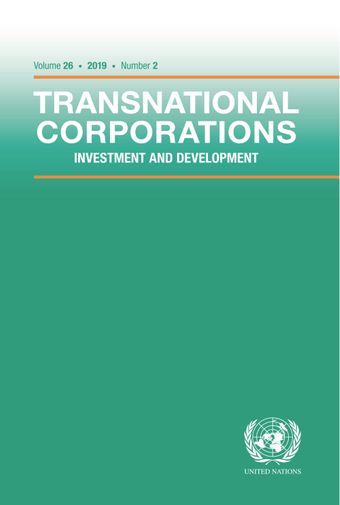-
SEZs and economic transformation: towards a developmental approach
- Source: Transnational Corporations, Volume 26, Issue 2, Sep 2019, p. 27 - 48
-
- 19 Sep 2019
Abstract
This study presents a three-pillared analytical framework for the success factors and development outcomes of special economic zones (SEZs). The core argument is that countries that adopt a well-structured approach towards SEZs that they can align with the broader development strategy, executive effectively, and continuously evaluate and manoeuvre over time, are more successful in achieving SEZ-led economic transformation than others. This requires strategic bureaucratic competencies to make the right choices and set clear strategic directions; strategic bureaucratic learning to dynamically and interactively engage in adjusting the strategies when needed; and strategic bureaucratic strengths to implement the strategy effectively. These elements in turn need an effective political leadership with a strong development focus that can energise and motivate bureaucracies. The study revisits the experience of successful, not-so-successful and least successful countries across the globe within this framework and concludes by raising some pertinent concerns about SEZ-led development strategy that emerge from the analysis.



